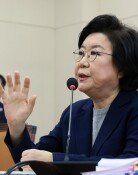Korea enters "Aging Society"
As of this new millenium, Korea has entered into the club of nations considered to be an "Aging Society" by U.N. standards.
In the National Statistic Office report titled "Current World and Korean Population" on the 10th, prior to the World Population Day on the 11th, the number of senior citizens in Korea past the age of 65 stands at 3.37 million individuals, accounting for 7.1% of the total population.
According to U.N. standards, any nation whose senior citizens account for over 7% of the total population receives the designation as an aging society. The NSO`s report signifies Korean society is slowly but surely toward its place as an aging society.
The NSO further predicted that the percentage of senior citizens would rise to 14% by the year 2022 and 19.3% by 2030. The projected numbers signify an increase in the current number of elderly supported by the segment of society between the ages of 16-64. While the current number stands at 10 elderly for every 100 persons, that number could reach to 30 by the year 2030.
Currently the population in S. Korea is estimated at 47 million placing S. Korea 25th in the world. However, together with the population in North Korea, bringing the total to 69 million, the Korean peninsula would place 15th in the world.
The population density in S. Korea is 476 persons per square kilometer, third in the world following Bangladesh at 897 and Taiwan at 617 per square kilometer.
The world population increases at the rate of 210,000 a day and has reached the total 6 trillion world-wide. China and among ten other nations account for over 100 million each.
Globally, the world witnesses 130 million births and 54 million deaths every year. The numbers reflect birth rate of 4.1 per second and 1.7 deaths per second.
The average number of offsprings for every fertile female in Korea stood at 4.5 in the 70`s, with a sudden drop by `98 to 1.48, lower than other developed nations(1.56).
In 1997, the life expectancy of Korean males was 70.6 years and 78.1 for females. The average life expectancy world-wide stood at 66.5 with some nations having higher expectancy for males; Japan (77.0), Sweden (76.5), Iceland (76.2). As for higher expectancy of women, Japan recorded 83.6, Sweden 81.9 and France 81.9.
Having marked 5 billion in 1987, the world population increased by a billion over 12 years and by 1999, it has reached 60 billion.
If current trend continues, the population will reach 6.8 billion by 2010 and 8.1 billion by 2030.
Of the total population 4 out of 10 live in China and India, 1.3 billion and 1 billion respectively.




![하버드 의사가 실천하는 ‘뇌 노화 늦추는 6가지 습관’ [노화설계]](https://dimg.donga.com/c/138/175/90/1/wps/NEWS/IMAGE/2026/01/22/133210626.3.jpg)


